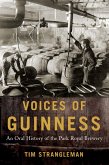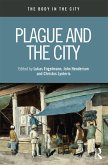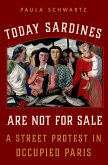Imagine a workplace where workers enjoyed a well-paid job for life, one where they could start their day with a pint of stout and a smoke, and enjoy free meals in silver service canteens and restaurants. During their breaks they could explore acres of parkland planted with hundreds of trees and thousands of shrubs. Imagine after work a place where employees could play more than thirty sports, or join one of the theater groups or dozens of other clubs. Imagine a place where at the end of a working life you could enjoy a company pension from a scheme to which you had never contributed a penny. Imagine working in buildings designed by an internationally renowned architect whose brief was to create a building that "would last a century or two." This is no fantasy or utopian vision of work but a description of the working conditions enjoyed by employees at the Guinness brewery established at Park Royal in West London in the mid-1930s. In this book, Tim Strangleman tells the story of the Guinness brewery at Park Royal, showing how the history of one plant tells us a much wider story about changing attitudes and understandings about work and the organization in the twentieth and early twenty-first centuries. Drawing on extensive oral history interviews with staff and management as well as a wealth of archival and photographic sources, the book shows how progressive ideas of workplace citizenship came into conflict with the pressure to adapt to new expectations about work and its organization. Strangleman illustrates how these changes were experienced by those on the shop floor from the 1960s through to the final closure of the plant in 2005. This book asks striking and important questions about employment and the attachment workers have to their jobs, using the story of one of the UK and Ireland's most beloved brands, Guinness.
Dieser Download kann aus rechtlichen Gründen nur mit Rechnungsadresse in A, B, BG, CY, CZ, D, DK, EW, E, FIN, F, GR, HR, H, IRL, I, LT, L, LR, M, NL, PL, P, R, S, SLO, SK ausgeliefert werden.









